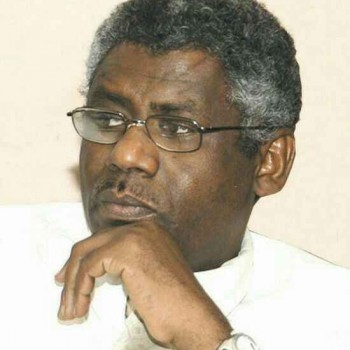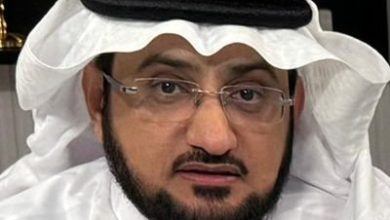Adel Al-Baz.. In the United Nations Hall… The Story of War and the Prospects of the Future

As I See it
1
Many might think President Al-Burhan’s speech offers nothing new, the same stance and narratives, with the same accusations against the rebels as presented at the United Nations General Assembly. The truth is that President Al-Burhan’s speech carried novelty in more than one aspect, as we will explain later. Those who dismiss such statements do not understand the value of addressing public opinion from the highest platform in the world. The speech is expected to clarify the realities of the war and its consequences, define what the world should do, and provide a vision for the future that carries commitments to the international community and reassurances, especially since Sudan still hopes for its understanding and support despite its shifting and perplexing positions. This is what President Al-Burhan’s speech achieved.
2
What is the nature of this war? President Al-Burhan answered it as “a destructive war waged by the Rapid Support Forces rebels, who formed alliances with tribal, regional, and international militias and recruited mercenaries from various parts of the world.” Why is it so? Because “these rebel groups have committed crimes against humanity and war crimes in most parts of Sudan. They have engaged in ethnic cleansing, displaced populations from their areas, committed sexual violence, racially motivated killings, torture, and everything that can be described as war crimes in Darfur and Khartoum. What happened in West Darfur in Geneina shocked the global conscience, as were the incidents in Tawila, Moreini, and Manawashi, and even in Khartoum, which all serve as strong evidence of the practices of these forces and groups.” So, this is the nature of the war, and its story was presented to the world by President Al-Burhan, along with all the evidence and proof, including images and audio recordings, displayed on screens worldwide and before the International Criminal Court. Despite all of this, what was Sudan’s stance? “It accepted all initiatives that could end the war, but they collided with the militias’ stubbornness and refusal to implement these initiatives.” Therefore, what is required from the international community in the face of these atrocities and genocide under the world’s watchful eye and ear? President Al-Burhan called for “classifying the Rapid Support Forces rebels and the militias allied with them as terrorist groups responsible for all the crimes that fall under this classification and the necessity of dealing decisively with those who support them.” Why does the world need to do this? In addition to what was mentioned above, “the danger posed by this group threatens regional and international peace and security, as the rebels have enlisted lawless groups and terrorist groups from several countries in the region and the world. This represents the spark that will ignite the spread of war to other countries in the region around Sudan, as regional and international interventions to support these groups have become evident, which means that this is the first spark that will set the region and the world on fire, directly affecting regional and international security.” Thus, the President told the story of the war, its causes, and the atrocities committed, warning of its threat to regional and global peace and security and placing the world before its responsibilities if some listen and seek justice.
3
What is new in President Al-Burhan’s speech at the General Assembly yesterday? First, the emphasis on classifying the Rapid Support Forces as a terrorist group after rebelling against the state because they were killed and exterminated. The words “terrorism” and “terrorists” appeared five times in the speech describing the Rapid Support Forces:
“Terrorist groups from several countries in the region and the world.”
“Lawless groups and terrorist groups.”
“Rapid Support Forces rebels and the militias allied with them as terrorist groups.”
“The barbaric attack suffered from the terrorists of the Rapid Support Forces.”
“To rescue it from the treachery of terrorist and rebel groups.”
Of course, this insistence means a lot and will lead to different developments if adopted internationally and regionally. Even if it is not internationally recognised, it will still result in political and legal measures against terrorists and their collaborators.
This is a new development, a significant shift in the Sudanese government’s classification of the nature of these forces that have transitioned from rebellion to terrorism, which they are currently practising against innocent civilians through killing, displacement, and extermination.
4
Secondly, the new aspect is the pledge made by the President before the world, stating, “We are still committed to our previous pledge to transfer power to the Sudanese people through broad and national consensus, where the armed forces will completely withdraw from political work, and the transition of power will occur through legal and peaceful means, including elections. We see there should be a short transitional phase during which a civilian government of independents manages the state. This phase will address the current security and economic situations and reconstruction.”
A civilian government made up of independents – this is the new promise. This means that the government that will govern the country until the elections is independent and not affiliated with any political parties. There will be no incubators for that government, and no party or entity has the right to seek to manage the transitional period based on revolutionary claims or divine right to rule Sudanese people against their will. The era of threats of mobilisation, coups, and wars to seize power is over. This is what the President stated, relieving those claiming revolutionary legitimacy from roaming the world seeking to form a government they lead, hoping it will be supported by the international community or conspiring countries in the region.
What the President stated yesterday is the same demand as that of the masses who no longer trust political parties and their conflicting agendas.
An important note to be underlined is the direct accusation of regional organisations, that they are subject to foreign domination. The President stated in his speech, “I must mention our regional organisations that need to free themselves from foreign control and look at the interests of African peoples so that they can regain the trust of Africans in solving our problems. We will not beg anyone to participate in solving our problems according to their country’s interests.”
5
Thirdly and lastly, for the first time, Sudan accuses regional organisations of being submissive to foreign powers, despite these organisations being initially established to lead the African liberation movement from the yoke of old and modern colonialism. The president’s speech reminds them of their founding mission and role. Instead of playing a leading role in liberating Africa from the shackles of colonialism, regional organisations have once again subjected themselves to colonialism, plundering their wealth and taking their people back to a new era of slavery with new chains at the hands of their men.



